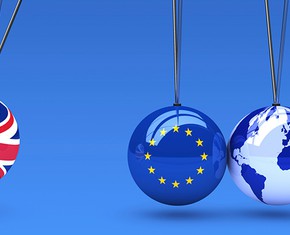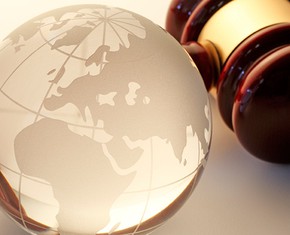The views expressed in our content reflect individual perspectives and do not represent the authoritative views of the Baha'i Faith.
In the previous essay, I shared a letter sent by a BahaiTeachings.org reader about being a Catholic and a Baha’i. He also had a major question about Baha’is and military service.
He wrote:
I am afraid I truly cannot bring myself to see eye to eye with the Baha’i stance on war. I do certainly acknowledge it to be a terrible thing, but I also see it is something that is inevitably a necessary thing in some circumstances, and I cannot agree with the restriction of Baha’is from serving in the military.
I sent him this reply:
As far as military service goes, there is no restriction against Baha’is serving in the military—I did so myself in Vietnam. Many Baha’is serve in the military, as long as they can do so in a non-combatant role—meaning that Baha’is accept military service, accept the necessity of a military, believe that one will certainly be necessary to sustain a global peace, etc.
What Baha’is (and followers of Christ, I would add) don’t countenance is killing others.
I didn’t carry a weapon in Vietnam, but my life was saved on several occasions by those who did, so I appreciate and honor their service. However, I do know, from personal experience dealing with the results of combat, that killing another person, regardless of the circumstances, has enormous spiritual ramifications that last a lifetime and beyond. God has commanded us, in the holy books of all the great Faiths, not to kill one another, so it seems to me that breaking such a basic commandment will inevitably burden and harm any soul.
Love,
David
The Baha’i teachings certainly recognize the potential for war and other armed conflicts in the world—but they have a unique and very consistent response to that potential.
As there is neither an International Police Force nor any immediate prospect of one coming into being, the Baha’is should continue to apply, under all circumstances, for exemption from any military duties that necessitate the taking of life. – Shoghi Effendi, Directives from the Guardian, p. 48.
Baha’is don’t shirk their duties as citizens of any nation. As loyal and devoted citizens, they offer their services to their country in any field of national service which is not specifically aggressive or directly military. One letter written on behalf of Shoghi Effendi, the Guardian of the Baha’i Faith, to the British Baha’is before World War II gave this advice:
Such forms of national work as air raid precaution service, ambulance corps, and other humanitarian work or activity of a non-combatant nature, are the most suitable types of service the [Baha’is] can render, and which they should gladly volunteer for, since in addition to the fact that they do not involve any violation of the spirit or principle of the Teachings, they constitute a form of social and humanitarian service which the Cause holds sacred and emphatically enjoins. – The Unfolding Destiny of the British Baha’i Community, p. 122.
Subsequent guidance urged Baha’is to:
… appeal to the government for exemption from active military service in a combatant capacity, stressing the fact that in doing so they are not prompted by any selfish considerations but by the sole and supreme motive of upholding the Teachings of their Faith, which make it a moral obligation for them to desist from any act that would involve them in direct warfare with their fellow-humans of any other race or nation. The Baha’i Teachings, indeed, condemn, emphatically and unequivocally, any form of physical violence, and warfare in the battlefield is obviously a form, and perhaps the worst form which such violence can assume.
There are many other avenues through which the believers can assist in times of war by enlisting in services of a non-combatant nature—services that do not involve the direct shedding of blood …
It is immaterial whether such activities would still expose them to dangers, either at home or in the front, since their desire is not to protect their lives, but to desist from any acts of wilful murder. – Ibid., pp. 128-129.
This does not mean that Baha’is oppose everything military. In fact, the Baha’i teachings foresee the eventual creation of an international police force after the nations of the world have disarmed and a world commonwealth has formed. In that future state of a world civilization, the Baha’i Faith envisions that individual countries will only retain sufficient armament and military power to maintain internal security and peace:
The unity of the human race, as envisaged by Baha’u’llah, implies the establishment of a world commonwealth in which all nations, races, creeds and classes are closely and permanently united, and in which the autonomy of its state members and the personal freedom and initiative of the individuals that compose them are definitely and completely safeguarded. This commonwealth must, as far as we can visualize it, consist of a world legislature, whose members will, as the trustees of the whole of mankind, ultimately control the entire resources of all the component nations, and will enact such laws as shall be required to regulate the life, satisfy the needs and adjust the relationships of all races and peoples. A world executive, backed by an international Force, will carry out the decisions arrived at, and apply the laws enacted by, this world legislature, and will safeguard the organic unity of the whole commonwealth. – Shoghi Effendi, The World Order of Baha’u’llah, p. 203.
In that future unified society, which all Baha’is believe in and work towards, a global military force would become the servant of justice.
















Comments
Sign in or create an account
Continue with Googleor